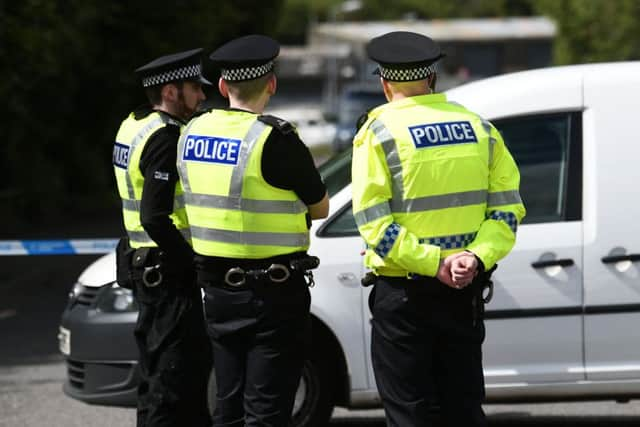Police Scotland second in the UK for spending the most money on informants
Scotland’s national force was second only to the Metropolitan Police in the amount it has paid out since 2014.
Informants are used by police to provide information which can help solve, or in some cases, prevent crimes.
Advertisement
Hide AdAdvertisement
Hide AdPayments typically range from two-figure sums for low-profile cases, to several thousand pounds where organised crime is involved


Police Scotland’s payments are decided on a case-by-case basis, dependent on the strength of the information received and the outcome.
The force withheld details of the largest payments made to informants, citing national security concerns and the need to preserve the integrity of ongoing investigations.
However, expenditure records released under Freedom of Information legislation show the level of spending on informants has risen sharply.
Whereas the force paid just £184,420 in 2014/15, the figure rose to £299,281 in 2018/19. The expenditure spiked in 2016/17, when the total payments amounted to £319,754.
In total, it paid out £1,342,915 over the period, ahead of the likes of West Midlands Police (£925,801) and Thames Valley Police (£749,850).
Only this month, Police Scotland’s Chief Constable Iain Livingstone issued a stark warning over funding, and said there was a “structural deficit” in the policing budget.
Amid questions over the cost-effectiveness of paying informants, Detective Superintendent Garry Church said the tactic was established.
Advertisement
Hide AdAdvertisement
Hide AdHe said: “The use of covert human intelligence sources is a tactic which is successfully used proportionately and legitimately to support the police service in keeping people safe.
“It is a well-established, highly-regulated and an independently-scrutinised tactic.”
The data, obtained by the University of Portsmouth journalism department, shows the Met has spent £4.36m on informants since 2014.
Neil Woods, a former undercover police officer who is now chief executive of Law Enforcement Action Partnership, a pressure group that campaigns to raise awareness of the UK’s “dangerous and expensive” pursuit of “punitive” drug policies, said the use of informants to tackle crimes such as theft was the most “cost effective” form of policing, but warned they did not help reduce crime.
“If you arrest a drug dealer on the information of an informant, you remove a drug dealer,” he added. “All it does is create an opportunity for another drug dealer. Crime doesn’t reduce.”